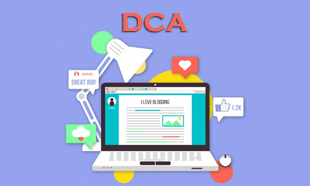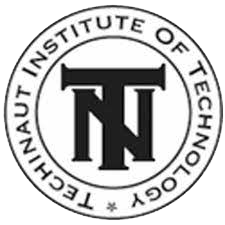2
Diploma in Computer Application (DCA) course at Shri Sai Computer Coaching Institute is tailored to meet the demands of the modern workplace, where proficiency in computer applications is essential for success.
In the bustling town of Yenbodi, Amdi, Chandrapura, Maharashtra, where the convergence of tradition and technology shapes the landscape, SHRI SAI COMPUTER COACHING INSTITUTE stands as a beacon of learning and innovation. As a Techinaut Institute of Technology franchisee, the institute offers a six-month Diploma in Computer Application (DCA) course designed to empower individuals with the knowledge and skills necessary to excel in computer applications.
INTRODUCTION OF THE COURSE:
The Diploma in Computer Application (DCA) course at Shri Sai Computer Coaching Institute is tailored to meet the demands of the modern workplace, where proficiency in computer applications is essential for success. Whether you are a student looking to enhance your employability or a professional seeking to upgrade your skills, this Course offers a comprehensive curriculum covering computer application fundamentals, including word processing, spreadsheet management, presentation design, and internet usage.
THE OBJECTIVE OF THE COURSE:
The DCA course aims to equip students with the knowledge and skills to utilize computer applications in various professional settings effectively. The Course aims to provide students with a solid foundation in computer fundamentals and practical experience in using popular software applications. By the end of the Course, students will be proficient in word processing, spreadsheet management, presentation design, internet usage, and electronic mail, making them valuable assets in any workplace.
COURSE CURRICULUM:
1. Basic of Computer:
The Course begins with an introduction to the basics of computers, including their history, components, and functions. Students learn about the evolution of computers and their role in modern society. They also gain practical experience using computer hardware and software, including input and output devices, operating systems, and application software.
2. Computer Organization:This module delves deeper into the organization and architecture of computers. Students learn about the internal components of a computer system, including the CPU, memory, storage devices, and peripherals. They also explore topics such as binary representation, data storage, and computer networks, gaining a deeper understanding of how computers work.
3. Operating System:Operating systems are a critical component of any computer system, providing a platform for running applications and managing hardware resources. In this module, students learn about operating systems, including Windows, macOS, and Linux. They also gain practical experience using operating system features such as file management, multitasking, and system configuration.
4. Word Processing:Word processing is a fundamental skill for anyone working with computers. In this module, students learn how to create, edit, and format documents using word processing software such as Microsoft Word. They learn about features such as text formatting, spell-checking, and document layout, gaining practical experience in producing professional-quality documents.
5. Spreadsheet Package:Spreadsheets are powerful tools for data analysis and management. In this module, students learn how to create, format, and analyze data using spreadsheet software such as Microsoft Excel. They learn about features such as formulas, functions, charts, and graphs, gaining practical experience in using spreadsheets to solve real-world problems.
6. Presentation Package:Presentations are essential to communicating information in the modern workplace. In this module, students learn how to create, design, and deliver effective presentations using software like Microsoft PowerPoint. They learn about features such as slide design, animation, and multimedia integration, gaining practical experience in creating dynamic and engaging presentations.
7. Introduction to the Internet:The Internet is a vast repository of information and resources, and its use is essential for accessing information, communicating with others, and conducting research. In this module, students learn how to navigate the internet effectively using web browsers, search engines, and online resources. They also learn about internet safety and security, gaining practical experience in responsibly and ethically using the internet.
8. Electronic Mail:Email is a ubiquitous communication tool in the modern workplace, and its use is essential for communicating with colleagues, clients, and customers. In this module, students learn how to create, send, and manage email messages using software like Microsoft Outlook. They learn about features such as email composition, attachments, and folders, gaining practical experience using email effectively for professional communication.
CONCLUSION:
The Diploma in Computer Application (DCA) course at Shri Sai Computer Coaching Institute offers a comprehensive curriculum covering computer application fundamentals, including word processing, spreadsheet management, presentation design, internet usage, and electronic mail. Whether you are a student looking to enhance your employability or a professional seeking to upgrade your skills, this Course provides the knowledge and practical experience necessary to excel in the modern workplace. Enroll today and take the first step towards a successful career in computer applications.
Lectures = 130 HRS
Practical/Tutorials = 130 HRS
Total = 260 HRS


